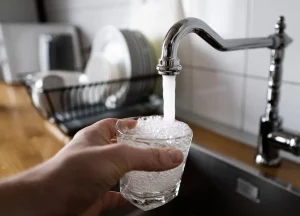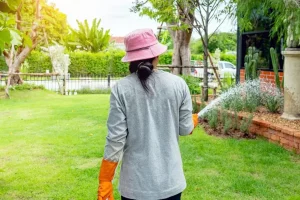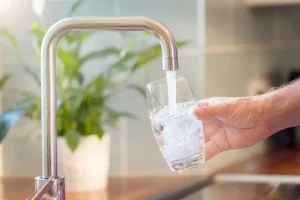What is the importance of water quality when making coffee?
Consider what goes into a cup black coffee. Ground coffee beans and water are the two main ingredients. The flavor of the coffee is determined by the beans used, but the water used to brew it can also make or break the experience.
When making a great cup of coffee, most people think of the quality and freshness and size of the coffee beans, the grind size, water to coffee ratio, water temperature and brewing method. It is important to choose the right water, and ensure its quality. We mean that the water should not adversely affect the flavor, aroma, or other characteristics that make a great cup.
Water is also the main ingredient in coffee brews, accounting for around 98.75% of the total beverage. It should be obvious that the chemistry of your water will have a significant impact on how your coffee tastes, looks, and smells. It is important to pay attention to the quality of your water.
Unfiltered coffee water: What is the deal?
Tap water is an easy way to make coffee. It is easy to find, however, tap water can have a major disadvantage when it comes brewing coffee.
Depending on your location, tap water might be coming from a municipality or a nearby lake or river, or from an underground well. This means that tap water quality and taste may vary from one area to the next. Tap water in the US is typically high in nitrate runoff, as it is common in agricultural areas. Because these regions rely on salty (or brackish) groundwater for their drinking water, tap water in the west is often more salty.
No matter where you live, tap water may contain traces of chemicals, minerals, heavy metals, or other undesirable elements. The amount of each element depends on the source and location. You can make the same coffee using different water types, and still get different tastes. This is why coffee from a local coffee shop will taste different to coffee made with tap water at home.
Unfiltered coffee water can cause coffee to taste weaker. Chloramine and chlorine can leave coffee with a chemical aftertaste and pungent smell. Your tap water may also have a metallic or slightly acidic taste from heavy metals like copper, manganese and aluminum. Unfiltered tap water can have a metallic or sour taste that may be transferred to your coffee. Other problems such as water hardness and other issues are also common in unfiltered tap water. This is often what causes coffee to have bitter tastes.
The water must not contain odor, color or chlorine to ensure that the coffee has the best taste and aroma. Even the best-quality coffee beans can produce some of the worst tasting coffee you have ever had.
If you’re satisfied with the quality of your coffee made from tap water and have consistent results, then you can continue to use that water. We recommend filtering your tap water if your coffee tastes different from day to day, even if you use the same beans.
Is it safe for unfiltered tap water to make espresso?
Unfiltered tap water is dangerous for coffee. It increases the likelihood of boring and stale coffee as well as the possibility that the water may have contained harmful contaminants along the way. The water may contain bacteria, heavy metals and chemicals as well as other undesirable matter. This could have happened through corroding pipes or water main breaks. Guess where these elements or compounds are likely to end up? It’s right in your coffee cup. We don’t recommend that you use unfiltered tap water to make coffee unless it has been treated with a reliable filter.











